|
|
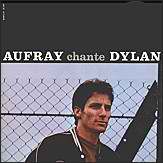
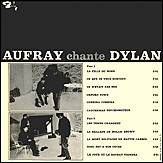
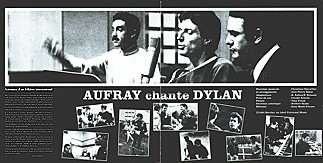
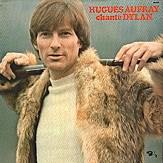
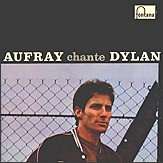
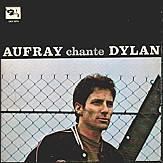
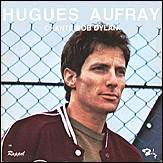
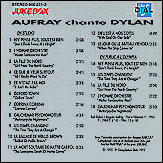 |
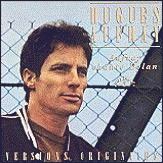 |
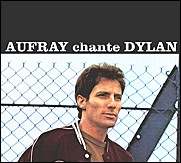 |
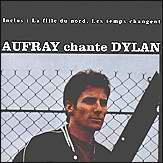 |
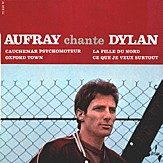 |
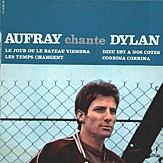 |
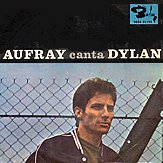 |
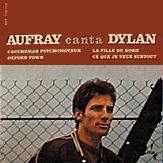 |
 |
|
(France, “red” sleeve) Cauchemar Psychomoteur (Motorpsycho Nightmare) Oxford Town La Fille Du Nord (Girl From The North Country) Ce Que Je Veux Surtout (All I Really Want To Do) |
(France,“blue” sleeve) Le Jour Ou Le Bateau Viendra (When The Ship Comes In) Les Temps Changent (Times They Are A-Changin') Dieu Est A Nos Cotes (With God On Our Side) Corrina Corrina |
(Spain, Aufray canta Dylan) Le Jour Ou Le Bateau Viendra (When The Ship Comes In) La Fille Du Nord (Girl From The North Country) Ce Que Je Veux Surtout (All I Really Want To Do) Corrina Corrina |
(Portugal, Aufray canta Dylan) French “red” sleeve) |
(Portugal, Aufray canta Dylan) French “blue” sleeve) |
| CD: ? | CD: Universal
9404 461 (France, 2001) |
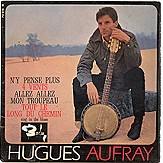
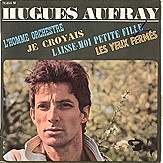
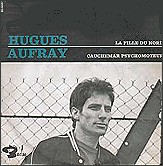 |
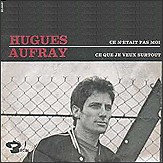 |
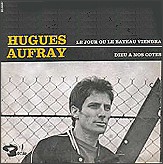 |
| Barclay Jukebox Promo singles (1965) | ||
| La
Fille Du Nord Cauchemar Psychomoteur Barclay 60.655 |
Ce
N'Était Pas Moi
Ce Que Je Veux Surtout Barclay 60.656 . |
Le
Jour Où Le Bateau Viendra
Dieu A Nos Côtés Barclay 60.659 |
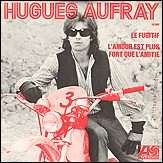 |
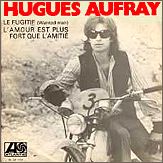 |
|
|
Atlantic 10 090 (France, 1971) |
Atlantic N-28-119 (Portugal, 1971) |
|
Bien avant que les premières chansons de
Bob Dylan n'arrivent
jusqu'à nous Hugues Aufray, qui les connaissait depuis
l'Amérique,
disait à qui voulait l'entendre:
"Dylan c'est formidable, un de ces jours j'enregistrerai un
album
qui lui sera entièrement consacré, vous verrez
que ce sera
très important".
Le voici cet album et je crois réellement qu'il est trés important pour la chanson.
Il y avait pour le réaliser quelques difficultés à résoudre: d'abord le passage de l'anglais, langue contractée, au français, langue prolixe. Ensuite l'abondance dans le texte d'anglicisme, d'américanisme et surtout de "Dylanisme". Enfin, la transposition du "son Dylan" en "son Aufray".
Ces problémes ont été résolus et je crois que vous allez entendre du "jamais entendu".
Certains auditeurs seront peut-être un peu déroutés à la première écoute, mais la sincérité du créateur comme celle de l'interprète finiront par les tiucher au coeur.
On peut vraiment parler d'événement, car, en chantant cet auteur américain, Hugues Aufray ressuscite sous une forme moderne un genre bien français oublié depuis un demisiècle: la "complainte" pleine de vérités populaires, de fraîcheur poétique et de simplicité musicale.
Voilà pourquoi je n'hésite pas à dire que naissent aujourd'hui dans ce disque les premières chansons du folklore international de notre temps.
Pierre Delanoë
Long before the first songs of Bob Dylan reached us in France, Hugues Aufray, who had heard them in America, used to say to anyone who would listen: "Dylan is terrific! One day I'm going to record an album which will be entirely devoted to him. Then you will see how important he is."
Here is that album, and I really believe it is a very important one.
There were many difficulties to overcome in it's production: first, the transition from English, a "contracted" language, to French, a "wordy" one. Then the abundance of Anglicism, Americanism, and, above all, "Dylanism" in the lyrics. And finally, the transposition of the "Dylan sound" to the "Aufray sound". These problems have been overcome, and you are going to experience something "never heard before".
Some listeners, perhaps, will be a little baffled on their first hearing, but the sincerity of the creator, like that of the interpreter, will undoubtedly touch their hearts.
Curiously, it is a matter of progression for, while singing the songs of this American writer, Hugues Aufray is reviving, in a modern form, a style which is indeed French but which has been forgotten for half a century: the "protest" song, full of popular truths, poetic freshness and musical simplicity.
That is why I do not hesitate to say that the first songs of a truly "International Folklore" of our time are being born on this record.
Pierre Delanoë
11/15/2009